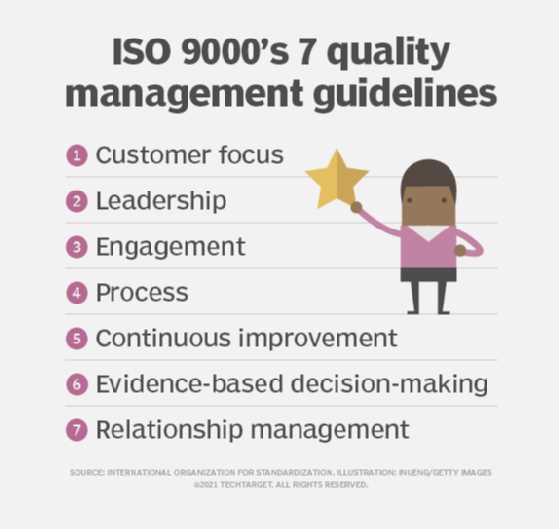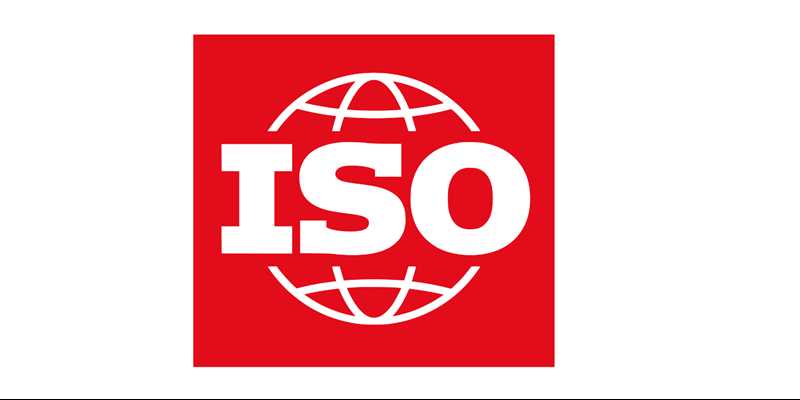What is ISO?
The International Organization for Standardization (ISO) is an independent, non-governmental international organization that develops and publishes standards to ensure the quality, safety, and efficiency of products, services, and systems. It was established in 1947 and is headquartered in Geneva, Switzerland.
ISO standards are developed through a consensus-based process that involves experts from various industries, including government, business, and consumer representatives. These standards provide guidelines and specifications for organizations to follow in order to achieve best practices and meet regulatory requirements.
ISO standards cover a wide range of areas, including but not limited to quality management, environmental management, information security, occupational health and safety, and social responsibility. These standards are designed to be applicable to organizations of all sizes and sectors, and they help organizations improve their processes, reduce risks, and enhance customer satisfaction.
ISO certification is a formal recognition that an organization has met the requirements of a specific ISO standard. It is a voluntary process that involves an independent assessment by a certification body to ensure compliance with the standard. ISO certification provides credibility and confidence to customers, suppliers, and other stakeholders that an organization operates in accordance with internationally recognized best practices.
ISO Standards and Certification
The International Organization for Standardization (ISO) develops and publishes international standards that provide guidelines, specifications, and criteria for various industries and sectors. These standards ensure that products, services, and systems are safe, reliable, and of high quality.
Types of ISO Standards
ISO standards cover a wide range of areas, including technology, manufacturing, healthcare, agriculture, and many others. Some of the most common types of ISO standards include:
- ISO 9001: This standard focuses on quality management systems and helps organizations improve customer satisfaction, enhance efficiency, and achieve continuous improvement.
- ISO 14001: This standard addresses environmental management systems and helps organizations minimize their environmental impact, comply with regulations, and demonstrate their commitment to sustainability.
- ISO 27001: This standard deals with information security management systems and helps organizations protect their sensitive information, manage risks, and ensure the confidentiality, integrity, and availability of data.
- ISO 45001: This standard focuses on occupational health and safety management systems and helps organizations create a safe and healthy work environment, prevent work-related injuries and illnesses, and comply with legal requirements.
ISO Certification Process
ISO certification is a formal recognition that an organization has met the requirements of a specific ISO standard. The certification process involves several steps:
- Gap Analysis: The organization assesses its current practices and identifies any gaps between its processes and the requirements of the ISO standard.
- Documentation: The organization develops and implements the necessary documentation, including policies, procedures, and records, to meet the ISO standard’s requirements.
- Internal Audit: The organization conducts an internal audit to ensure that its processes comply with the ISO standard and identifies any areas for improvement.
- External Audit: An independent certification body conducts an external audit to verify the organization’s compliance with the ISO standard.
- Certification: If the organization successfully passes the external audit, it receives ISO certification, which is valid for a specific period.
- Surveillance Audits: The certification body conducts regular surveillance audits to ensure that the organization maintains its compliance with the ISO standard.
ISO certification provides numerous benefits to organizations, including enhanced credibility, improved customer trust, increased market opportunities, and better overall performance. It demonstrates that an organization is committed to quality, safety, environmental responsibility, and other important aspects of its operations.
Importance of ISO Certification

ISO certification is of utmost importance for organizations across various industries. It provides numerous benefits that can enhance the credibility, efficiency, and competitiveness of a company.
Firstly, ISO certification demonstrates that an organization meets international standards and follows best practices in its operations. This can significantly enhance the reputation and trustworthiness of the company, both among customers and business partners. It shows that the organization is committed to delivering high-quality products or services and is dedicated to continuous improvement.
Secondly, ISO certification can open up new business opportunities. Many companies, especially in sectors such as manufacturing, construction, and healthcare, require their suppliers to be ISO certified. Having ISO certification can give a company a competitive edge when bidding for contracts or entering new markets. It can also attract potential customers who prioritize working with ISO certified suppliers or service providers.
Thirdly, ISO certification can improve the efficiency and effectiveness of an organization’s processes. ISO standards provide guidelines and frameworks for implementing best practices in areas such as quality management, environmental management, information security, and occupational health and safety. By aligning their processes with these standards, organizations can streamline their operations, reduce errors and waste, and improve overall performance.
Furthermore, ISO certification can help organizations comply with regulatory requirements. Many government agencies and industry regulators recognize ISO standards and consider ISO certification as evidence of compliance. This can simplify the process of obtaining necessary permits, licenses, or approvals, and ensure that the organization operates within legal and regulatory frameworks.
Lastly, ISO certification can boost employee morale and engagement. It provides employees with a clear framework and guidelines for their work, which can increase their confidence and job satisfaction. It also fosters a culture of continuous improvement and encourages employees to actively participate in quality and process improvement initiatives.
ISO and Regulatory Bodies
ISO, the International Organization for Standardization, plays a crucial role in collaborating with regulatory bodies around the world. Regulatory bodies are responsible for enforcing laws and regulations in various industries to ensure safety, quality, and compliance.
ISO works closely with these regulatory bodies to develop and establish international standards that can be adopted and implemented by organizations globally. These standards provide a framework for organizations to meet regulatory requirements and improve their processes, products, and services.
Collaboration with Regulatory Bodies
ISO collaborates with regulatory bodies in several ways:
- Developing Standards: ISO works with regulatory bodies to develop standards that address specific industry needs. These standards are based on best practices and are designed to enhance safety, quality, and efficiency.
- Adoption of Standards: Regulatory bodies often adopt ISO standards as part of their regulatory requirements. By doing so, they ensure that organizations comply with internationally recognized best practices.
- Harmonization of Regulations: ISO helps regulatory bodies harmonize their regulations with international standards. This alignment simplifies compliance for organizations operating in multiple jurisdictions.
- Sharing Knowledge: ISO facilitates the exchange of knowledge and expertise between regulatory bodies and organizations. This collaboration helps regulatory bodies stay updated on industry trends and emerging technologies.
Benefits of Collaboration

The collaboration between ISO and regulatory bodies offers several benefits:
- Global Consistency: By adopting ISO standards, regulatory bodies ensure consistency in regulations across different countries and industries. This consistency promotes international trade and facilitates market access.
- Improved Compliance: ISO standards provide a clear framework for organizations to meet regulatory requirements. By implementing these standards, organizations can enhance their compliance efforts and avoid penalties.
- Enhanced Safety and Quality: ISO standards are developed with a focus on safety, quality, and efficiency. By adopting these standards, regulatory bodies can ensure that organizations adhere to best practices and deliver safe and high-quality products and services.
- Efficient Resource Allocation: Collaboration between ISO and regulatory bodies helps streamline regulatory processes and reduce duplication of efforts. This efficiency allows organizations to allocate their resources effectively and focus on core business activities.

Emily Bibb simplifies finance through bestselling books and articles, bridging complex concepts for everyday understanding. Engaging audiences via social media, she shares insights for financial success. Active in seminars and philanthropy, Bibb aims to create a more financially informed society, driven by her passion for empowering others.
